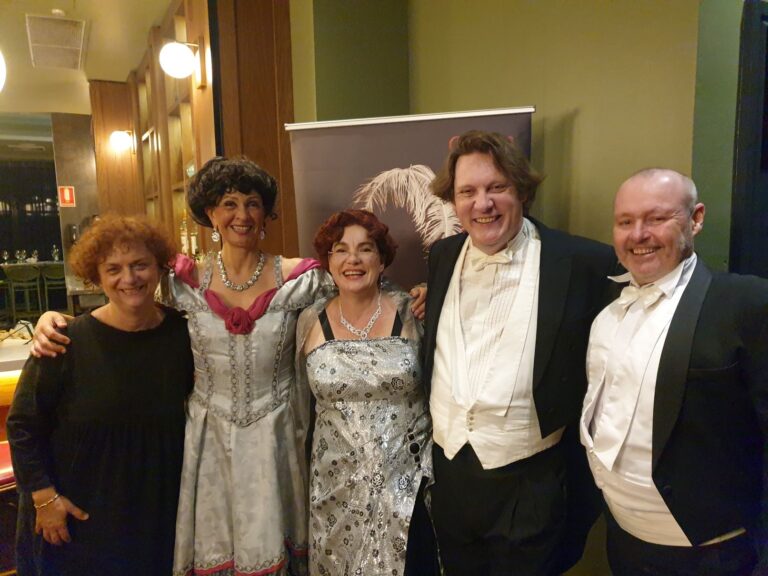
Alcohol-Free Zones won’t curb violence, say city councillors
BY REBECCA ZHOU
Alcohol-Free Zones (AFZs) have been branded a waste of time and money in countering alcohol-related crime.
At a Culture and Community Services Committee meeting on Monday, local councillors severely criticised the City of Sydney’s proposal to increase alcohol-free zones across Darlinghurst, East Sydney, Kings Cross, Woolloomooloo and Surry Hills from from 44 to 72 ‘ a whopping 40 per cent.
‘Police already have enough power to deal with alcohol-related violence, which is supposed to be the real issue here,’ said Liberal councillor Shayne Mallard.
The revised Intoxicated Persons Act 2002, enables police to detain an intoxicated person in a public space.
Yet in alcohol-free zones ‘ established by council in 2005 ‘ the offender could face a fine of a mere $20 if they ignore an initial warning from police. In 2006, only 231 fines were issued and half of them were never paid.
‘You are not going to get rid of an alcoholic’s habits with a $20 fine,’ Cr Mallard said.
He added that AFZs are not only ineffective in countering the real problem, they create others.
‘I had a German backpacker approach me the other day wanting to know where he could drink his beer. I felt embarrassed as an ambassador for this city.
‘Young binge drinkers will just retreat into pubs or disguise alcohol in soft drink bottles. Instead, the people who are being criminalised and discriminated against are the homeless and the indigenous people who suffer from serious addictions.’ Cr Mallard said.
Greens Councillor Chris Harris agreed, saying: ‘Instead of spending $500 on a new sign and a new pole they could use that money to fund programs like Outreach which will actually improve things for the long term.’
City of Sydney Council states that AFZs are implemented among other strategies that address the needs and vulnerabilities of the homeless by treating street drinking as a ‘public health issue rather than a criminal justice problem’.
‘The uses of AFZs are only one of the many ways we address antisocial behaviour. The Street Drinking Strategy and Homelessness Strategy provide practical and compassionate responses for people who are homeless or have chronic drinking problems,’ said a City of Sydney spokesperson. ‘But AFZs remain an important preventative tool-giving police powers to stop drinking on the street and prevent problems from escalating.’
Councillor for Clover Moore’s Independent’s, Marcelle Hoff, supports the alcohol-free zone project. ‘What we really need are Wet and Dry centres like they have in Manchester which provide a safe place for people to drink,’ Cr Hoff said. ‘But how far we are from that is unknown. For the moment we are focusing on doing what the community asks of us.’
Fifteen applications have recently been submitted by local residents demanding as many as 14 new AFZs in Surry Hills.
‘It’s basically just local residents thinking that this one-size-fits-all approach is going to rid the streets of violence in general,’ said Mr Mallard.
AFZs are established in mutual consultation between police and council after taking community submissions into account. Police can also submit applications for an area which has been deemed problematic and the council makes the final decision.
‘It’s a two-way process,’ said Shayne Woolbank, Crime Manager of Surry Hills Police, ‘Sometimes the council will ask for police assessment of the area proposed, in terms of whether it has a long-standing history of alcohol and antisocial behaviour.’
Sergeant Matt Fotopoulos, Licensing Officer of Redfern Police Station, said their approach as ‘holistic’.
‘There has definitely been a reduction in alcohol-related crime in the past year but it is difficult to say whether or not this is solely due to alcohol free zones,’ Sergeant Fotopoulos said.
A review of the AFZs was undertaken in 2007 by the Department of Local Government but it has not been released to the public or the City of Sydney Council despite requests for viewing.
‘We’ve asked repeatedly for empirical evidence of the strategy’s effectiveness but have been given none. Why’ Because they are not effective.’ Cr Harris said.
‘The matter remains under consideration,’ said a Department of Local Government spokesperson. ‘This issue cuts across several portfolio areas and a whole of government response on this issue is being formulated.’
Councillors will vote on the proposal at the next full council meeting.









